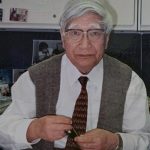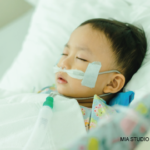(Reuters Health)—During the COVID-19 pandemic, an inflammatory condition similar to Kawasaki disease has been reported in children and adolescents, and now two groups of New York doctors each describe a case, one in a 36-year-old woman and one in a 45-year-old man.1
“We’re still learning how COVID-19 is affecting children and adults. The better we understand the myriad of ways that COVID-19 can affect the body, the better we can tailor the treatment,” says Joshua Scheers-Masters, MD, of the Maimonides Medical Center, New York, a member of the team that treated the woman.
“This Kawasaki-like condition appears to be a delayed effect of the virus rather than immediate,” he tells Reuters Health by phone. “The treatment for this is different than the treatment for the direct effects of the virus, so doctors need to keep their eyes wide open in the context of this pandemic.”
Kawasaki disease itself causes swelling across various systems in the body, including the skin, lymph nodes and blood vessels. Symptoms include a high fever and rash that develops into severe inflammation, and if untreated, can lead to fatal heart and brain issues. The condition typically affects children under age 5 and resolves within a few weeks after treatment.
The Multisystem Inflammatory Syndrome in Children (MIS-C) phenomenon that appears to be secondary to COVID-19 infection in children isn’t exactly Kawasaki disease, but it looks similar, Dr. Scheers-Masters and colleagues note in the American Journal of Emergency Medicine.1
In their report, Dr. Scheers-Masters and colleagues discuss the case of a 36-year-old woman who arrived at the emergency department with a rapid heartbeat and low blood pressure after a week of fever, abdominal pain, vomiting and diarrhea. She also showed symptoms suggestive of Kawasaki, such as pink eye, cracked lips, swollen hands and feet, redness on the palms of her hands, a large rash and swollen lymph nodes. Lab tests showed low sodium levels, high liver values and irregular blood tests. Scans also showed inflammation in the lungs, gallbladder and colon.
The patient was treated for Kawasaki Disease Shock Syndrome with aspirin, steroids and intravenous immunoglobulin to reduce inflammation and antibody issues. Within a day, her vital signs leveled out, and her lab tests shifted back to normal within six days. She also tested positive for COVID-19 antibodies, indicating a prior infection. The doctors gave her a prescription for prednisone to take at home.
And on July 10 in The Lancet, doctors at New York University reported on a 45-year-old man whose clinical presentation and course shared “a striking resemblance” to MIS-C. The patient improved after treatment with anticoagulation, intravenous immunoglobulin, and tocilizumab.


